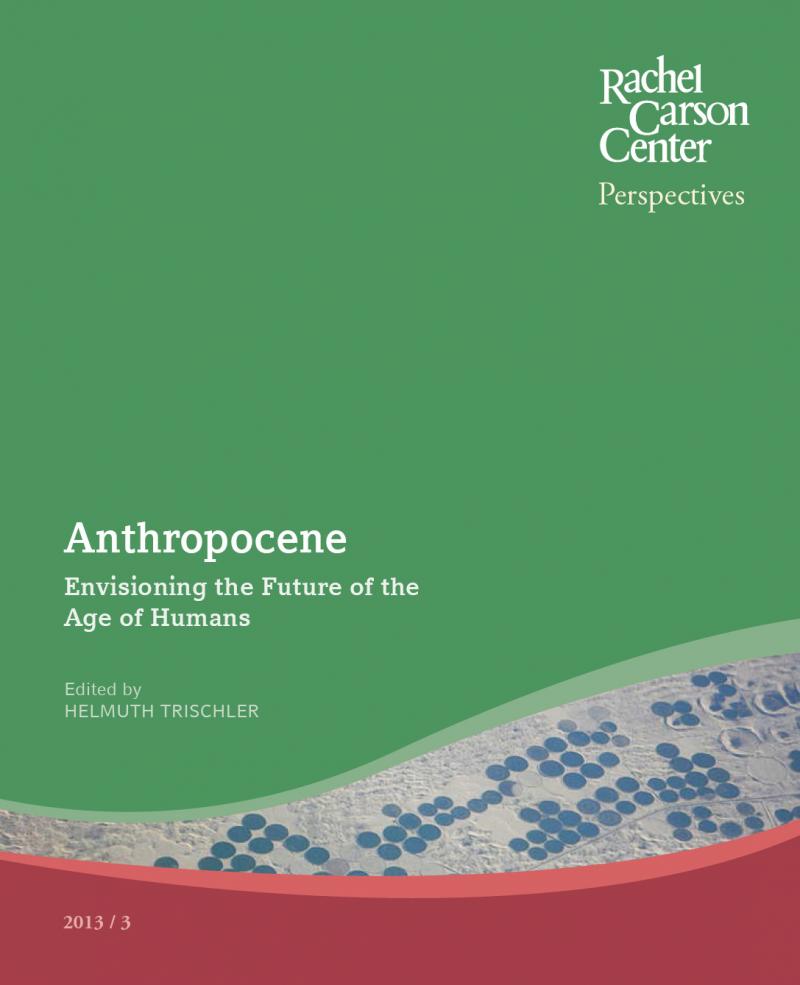About this issue
Scientists have suggested that the effects of human activities are beginning to leave traces in the geological record, leading to the creation of a new geological epoch: the Anthropocene. But what does it mean to live in the Anthropocene? What are our responsibilities in a world where the boundaries between nature and culture are no longer clear? How do we visualize and teach the challenges of the future? The articles in this issue of RCC Perspectives reflect upon the ethics, aesthetics, and didactics of an “Age of Humans.”
How to cite: Trischler, Helmuth (ed.), “Anthropocene: Exploring the Future of the Age of Humans,” RCC Perspectives 2013, no 3. doi.org/10.5282/rcc/5603.

Content
- Introduction by Helmuth Trischler
- Assuming Responsibility for the Anthropocene: Challenges and Opportunities in Education by Reinhold Leinfelder
- Neurogeology: The Anthropocene’s Inspirational Power by Christian Schwägerl
- The Enjoyment of Complexity: A New Political Anthropology for the Anthropocene? by Jens Kersten
- Cur(at)ing the Planet—How to Exhibit the Anthropocene and Why by Nina Möllers
- Anthropocenic Poetics: Ethics and Aesthetics in a New Geological Age by Sabine Wilke


